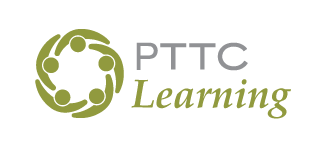Overview
Building Readiness to Adopt Community-Level Alcohol Policy
Alcohol-related harms impact communities in many ways, but strong, strategic policies can help shape the environments where alcohol is sold and consumed, reducing those harms at the source.
Join us for a dynamic four-week Enhanced Prevention Learning Series that will strengthen personal and organizational readiness to develop and implement local alcohol policies.
Local alcohol policies are proven, evidence-based tools for creating safer, healthier communities. Yet many groups struggle with how to begin the policy process. This series will help participants build a data-informed understanding of when, where, and how alcohol-related issues arise—laying the groundwork for identifying and advancing effective policy solutions.
When:
States & American Samoa:
Dates: November 18, 25, 2, 9, 2025
Time: 1:00 PM – 2:30 PM Pacific
Facilitator:
Rick Collins is a Cincinnati, OH native who has resided in Hawai‘i since 2003. He specializes in community organizing and public health policy advocacy on alcohol and drug use prevention. In 2012, Rick helped organize concerned residents establish a new community coalition to address youth substance use problems occurring on Maui, and served as its coordinator for the first four years. He is the co-founder of the Hawai‘i Alcohol Policy Alliance, a statewide coalition whose mission is to advocate for public health-focused alcohol policies, and he currently serves as Coalition Director for three community coalitions across Hawai‘i. His experience includes establishing new coalitions, planning and implementing prevention programs and community-level strategies, grassroots organizing, and mobilizing a statewide effort to advocate for state-level alcohol and drug prevention policies. Rick works as a consultant for Community Anti-Drug Coalitions of America, and he provides training and technical assistance to community coalitions and prevention professionals locally and across the country. He is a Certified Prevention Specialist and holds an MS in Counseling Psychology from Chaminade University and a BA in Religious Studies from the University of Dayton.
Objectives:
- Describe the role of policy in addressing environmental factors that impact communities
- Explore best practice policies to reduce underage and excessive drinking in communities
- Identify a local community-level alcohol-related problem they would like to address
- Examine the types of data required to support effective policy solutions
- Analyze potential policy options to determine the best fit for addressing their community’s needs
- Discuss common barriers to policy work and strategies to overcome them
Audience:
- Substance misuse prevention practitioners located in the Northwest (HHS Region 10) states of Alaska, Idaho, Oregon and Washington.
- Prevention practitioners who would like to become a Certified Prevention Specialist or need continuing education hours to meet re-certification requirements.
- Please note: This training is reserved for prevention professionals working in HHS Region 10.
- Prevention professionals interested in this course but who work outside of HHS Region 10 are encouraged to contact their region’s PTTC to learn about similar courses available to them.
Participant Commitment and Expectations:
- If your experience with Zoom is limited or you want to review key features of Zoom, please view the 20-minute Introduction to Zoom video prior to the first session on Tuesday, November 18, 2025 on how to use and maximize the platform.
- Participate in 4 sessions of training, for 1.5 hours on scheduled series days/times.
- Complete up to ONE hour of independent learning activities between each session.
- Use a web-camera and have access to appropriate technology to join the online videoconferencing platform (i.e., internet connection, built-in or USB webcam, desktop/laptop computer, built-in/USB/Bluetooth speakers & microphone).
- Actively engage and be on camera 90% of the time during each session, since this is not a webinar series and active participation is essential to gain/improve skills.
Please Note:
This EPLS is not a webinar series. Active participation in each session is essential to gain and improve skills. If you cannot attend these sessions, you will forfeit your attendance.
The Northwest PTTC is committed to the safety of all participants. Driving while participating in these sessions is strongly discouraged, as it is seen as a danger to the participant. If driving cannot be avoided during your scheduled session for any reason, please contact the PTTC staff at pttclearning@casat.org .
In addition, it is expected that participants will have access to the appropriate technology by Tuesday, November 18, 2025 in order to fully participate and be on camera at least 90% of the time.
If you have questions regarding technology requirements or registration details contact pttclearning@casat.org.
Certificates:
Participants who complete all 4 sessions will receive a certificate of attendance for 10 contact hours. No partial credit is given for this course. Participants will need to confirm with their certification board to determine if these certification hours are accepted towards their specific certification requirements.
To help make engagement more comfortable, we limit the number of people who can enroll in EPLS. If you cannot commit to joining the sessions or completing the prep-work packets, please defer this opportunity to others on our waiting list.
The Northwest PTTC is a collaboration led by Washington State University in partnership with the Social Development Research Group at the University of Washington, and CASAT at the University of Nevada, Reno.

